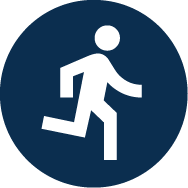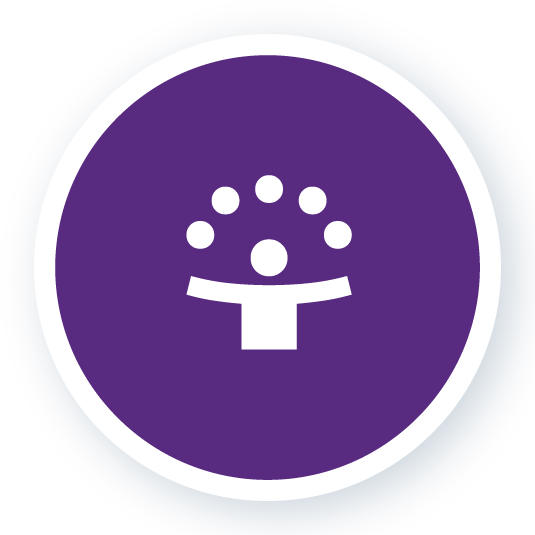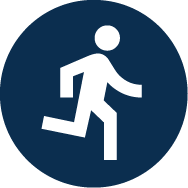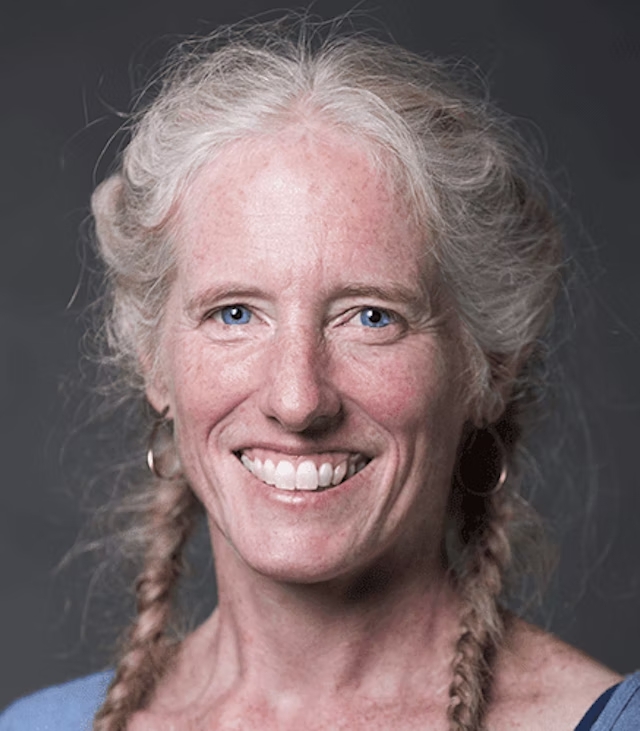Online
Not Required
Months to Complete
Required Courses
Pathways
Pathway to MS in Computer Science (Post-Baccalaureate Certificate)
The Pathway to MS in Computer Science affords students the opportunity to boost their computing careers by developing key competencies through comprehensive, foundational computer science knowledge and skills. This post-baccalaureate certificate program provides a pathway to an MS in Computer Science, enabling students to smoothly transition into the master’s program upon completion of the bridge materials.
MS in Computer Science Pathway
Gain the foundational knowledge and skills in data structures, algorithms, hardware, and systems you need to acquire the credentials to earn a Master of Science in Computer Science. As part of the Pathway to MS in Computer Science, you will receive a Post-Baccalaureate Certificate in Computer Science upon completion of the bridge materials.
Online Post-Baccalaureate Certificate: Your Pathway to a Master’s Degree

Begin Pathway to MSCS
Gain foundational computer science skills and become well-equipped to pursue the MSCS.
2 Undergraduate Courses (delete?)

Earn Your MS in Computer Science

Interested in exploring computer science while earning a valuable credential along the way?
The Post Baccalaureate Certificate in Computer Science can be acquired by completing 5-6 courses, or as part of the Pathway to MSCS.
Post-Baccalaureate Computer Science Certificate
The Post-Baccalaureate Certificate in Computer Science is designed to provide you with the foundational computer science online courses you need to start a new career in technology.
Connect with an Enrollment Advisor
Connect With UsComputer Science Career Outlook
The computer science field is rapidly growing, and organizations across industries are eagerly pursuing new talent. Employment in this sector is expected to increase 23 percent by 2032,* and the average salary of U.S. computer science master’s degree holders is $112,000.**
The Tufts master’s in computer science online program will equip you with the skills and credentials needed to pursue new job opportunities, advance within your current organization, and increase your earning potential. From building applications to developing large-scale software systems, you’ll participate in transformative learning experiences that challenge you to think critically and develop creative solutions with real-world applications.
*U.S. Bureau of Labor Statistics, 2024
**Payscale, September 2024
Explore high-demand jobs you can pursue with an online computer science master’s degree and the average salary you could earn:
| Job title | Average salary |
|---|---|
| Vice president (VP), information technology | $164,070 |
| Director of engineering | $159,910 |
| Senior product manager | $140,046 |
| Machine learning engineer | $127,254 |
| Principal software engineer | $127,254 |
| Senior software engineer | $127,254 |
| Senior systems engineer | $127,254 |
| Software developer | $127,254 |
| Software development manager | $127,254 |
| Information security officer | $112,008 |
| Data scientist | $103,501 |
| Solutions architect | $102,232 |
| Test/quality assurance engineer | $99,611 |
Source: Lightcast, 2023
Why Choose Tufts University for Your Online Pathway to MS in Computer Science?
A world-class research institution, Tufts develops leaders who advocate for public good. As a Pathway in MS in Computer Science online student in the School of Engineering, you’ll join a collaborative community and strengthen your forward-thinking, innovative mindset through hands-on experiences and industry partnerships.
Computer Science Courses and Curriculum
The online Pathway to MS in Computer Science program covers essential computer science courses and is designed for students who aspire to jumpstart their technical careers. Students will earn the Post-Baccalaureate Certificate in Computer Science upon completion of the bridge materials in as little time as one semester and can then proceed to the MSCS program, earning their master’s degrees in just 2.5 years.
Required Undergraduate Courses:*
4 Credits
In this course, data structures and algorithms are studied through major programming projects in the C++ programming language. Topics covered include linked lists, trees, graphs, dynamic storage allocation, and recursion.
3 Credits
This course covers foundations of discrete mathematics and an introduction to proofs. Topics include propositional logic, sets, relations and functions, counting, logic and methods of proof, combinatorics, graphs and digraphs, probability, and number theory.
Note: Students have the option to take a third undergraduate course, Intro to Computer Science (CS 11). This course would not replace either of the required two courses above.
Required Core Competencies
4 Credits
In this introduction to the study of algorithms, explore strategies that include divide-and-conquer, greedy methods, and dynamic programming. Delve into graph algorithms, sorting, searching, integer arithmetic, hashing, and NP-complete problems.
3 Credits
Study models of computation that include Turing machines, pushdown automata, and finite automata. Learn grammars and formal languages, such as context-free and regular set. Better understand important problems, including language equivalence theorems and the halting problem.
Students may select one of the following courses as an elective:
5 Credits
Learn the principles and application of computer programming languages, with an emphasis on the ideas and techniques most relevant to practitioners. The course explores abstract syntax, lambda calculus, type systems, and dynamic semantics.
3 Credits
Analyze the fundamental issues in operating system design, including concurrent processes such as synchronizations, sharing, deadlock, and scheduling. Examine the relevant hardware properties of uniprocessor and multiprocessor computer systems.
3 Credits
Explore the fundamental concepts of database management systems, including data models, SQL query language, implementation techniques, the management of unstructured and semi-structured data, and scientific data collections.
3 Credits
Delve into the fundamentals of cybersecurity, including attacking and defending networks, searching for vulnerabilities, cryptography, reverse engineering, web security, static and dynamic analysis, malware, and forensics. Hands-on labs and projects included.
3 Credits
Examine core principles and ideas that enable the development of large-scale software systems, with a focus on programming. Explore abstraction, modularity, design patterns, specification, testing, verification, and debugging.
3 Credits
Investigate the methods that computers can use to learn from data or experience and make corresponding decisions. Topics explored include supervised and unsupervised learning, reinforcement learning, and knowledge extraction with applications to science, engineering, and medicine.
*If you do not have any academic or professional experience in computer science, you may be required to take CS 11 as an introductory course to the Post-Bacc.
Students who complete the required courses with satisfactory academic performance will be able to enroll in the online Master of Science in Computer Science program.
Pathway to MS in Computer Science (post-baccalaureate certificate) to MS in Computer Science:
The Pathway to MS requires the same courses as the certificate pathway but does not require a second application to the MS program. Instead, after successfully completing the certificate courses, students will be able to continue pursuing the Master of Science in Computer Science.*
*In some circumstances, students may be able to start the MS program after completing only two of the graduate-level post-baccalaureate courses. Students in that position should speak with their academic advisor.
Frequently Asked Questions
Computer science jobs are expanding across industries as more organizations prioritize their technical needs. As a graduate of the Tufts computer science master’s program, you will have the tools and expertise to pursue the highest-earning computer science roles in areas such as software development, solutions architecture, cybersecurity, and data science, among others.
Upon completion of the online Pathway to MS in Computer Science (post-baccalaureate certificate), you will be ready to pursue a technical career and meet the qualifications to enroll in our online MS in Computer Science program.
No specific background experience is required to apply to the online Pathway to MS in Computer Science (post-baccalaureate certificate) program. Whether you’re new to the field or looking to enhance your existing skills, our program is designed to accommodate students from diverse academic and professional backgrounds.
Yes, you can pursue the Master of Science in Computer Science (MSCS) after completing the Pathway to MS in Computer Science (post-baccalaureate certificate) program.
The application requirements for the online Pathway program include:
- Application fee
- Resume/CV
- Personal statement
- Transcripts
- One letter of recommendation
- Official TOEFL, IELTS, or Duolingo test scores (if applicable)
For application help, schedule a one-on-one walkthrough with an enrollment advisor.
Cost per credit for the Pathway to MS in Computer Science program in Computer Science is $1,765 for graduate-level courses (numbered 100 and above) and $1,049 for undergraduate-level courses (numbered below 100).* Please review tuition and financial aid resources available.
*While most tuition rate changes are effective in the fall term each academic year, The Trustees of Tufts College reserve the right to change the tuition or to establish additional fees or charges for special features or services whenever such action is deemed advisable. We will provide the earliest possible notification of changes in tuition and other fees.
Students enrolled in the Pathway to MS in Computer Science are eligible for certain scholarships. These scholarships can only be used towards the MS in Computer Science degree program. Our dedicated financial aid advisors can help you explore scholarship opportunities, grants, loans, and other forms of financial assistance to make your education more affordable.
As a student in the Tufts online Pathway to MS in Computer Science program, you’ll have access to a comprehensive array of support services designed to enhance your learning experience and facilitate your academic success. These services include:
- Dedicated academic advisors
- Technical support resources
- Online tutoring
- Career counseling
- Networking opportunities
- Access to online library resources and research databases.
Our goal is to provide you with the support you need to excel in your studies and achieve your professional goals.
No, the Tufts online Pathway to MS in Computer Science program is 100 percent online, allowing you to complete your coursework from anywhere. Our flexible online format enables you to balance your studies with your personal and professional commitments while still benefiting from the same high-quality education and resources available to on-campus students.
To learn more about the Tufts online Pathway to MS in Computer Science, schedule a one-on-one walkthrough with an enrollment advisor or request more information. Tufts University offers a flexible, 100 percent online program designed to help you advance your career.
Tufts University Accreditation
Tufts University has been continually accredited by the New England Commission of Higher Education (NECHE), one of seven regional higher education accrediting bodies in the United States, since 1929. Tufts is evaluated by and achieves accreditation from NECHE once every ten years. The next comprehensive evaluation will take place in Spring 2033.



